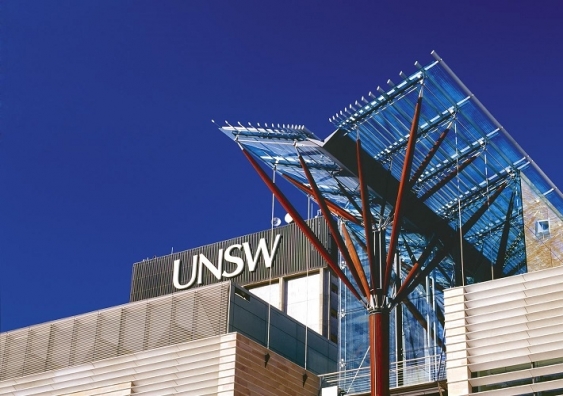
The newest future fellows have been awarded $11.5 million to conduct research that will deliver significant health, scientific, environmental, social and economic benefits.

UNSW Sydney academics from across a diversity of disciplines have been named Future Fellows by the Australian Research Council (ARC). The group of 13 researchers secured more than $11.5 million in funding for projects ranging from cybersecurity systems for Australia’s electrical supply grid to seeking new knowledge in human-robot interactions.
Minister for Education Dan Tehan this week announced the 100 ARC Future Fellows who will share $87.8 million to conduct important research projects. UNSW received the second-highest number of Future Fellowships after the University of Melbourne, which received 15.
The ARC scheme provides four-year fellowships to outstanding mid-career researchers to undertake high-quality research in areas of national and international benefit as an incentive to keep them in Australia. The Future Fellowship aims to expand knowledge base and research capacity in Australia; while increasing economic, commercial, environmental, social and/or cultural benefits throughout the country.
“We are extremely proud of the high number of Future Fellowships UNSW researchers attained this year,” Professor Ana Deletic, Pro Vice-Chancellor, Research said.
“The University is committed to fostering mid-career researchers as they undertake research that will benefit society on a national and international scale and to become leaders in their respective fields. These inspirational Future Fellows will shape research for the 21st century and help position Australia as a research and innovation powerhouse.”
UNSW researchers awarded Future Fellowships
UNSW’s successful applicants are:
Dr Guo Chen, from the UNSW Engineering, who will explore the threats to Australia’s electrical power industry and enhance the resilience of the smart grid against natural disasters, intentional attacks and potential large blackouts.
Dr Dimitrie Culcer, from UNSW Science, who will investigate ultra-fast information processing and state-of-the-art computer memory. The Fellowship will establish the use of magnets and newly discovered topological materials, to improve the speed and functionality of computer memory, logic elements, artificial intelligence devices and sensors.
Associate Professor Lisa Ford, from UNSW Arts & Social Sciences, who will enhance understanding of emergency powers and the complex relationships among violence, law, humanitarianism and liberalism that underpinned British imperial ideology at a crucial time in global history.
Dr Petra Gemeinboeck¸ from UNSW Art & Design, who seeks to generate new knowledge in human-robot interaction through an interdisciplinary arts-led approach, bringing together creative robotics, performance techniques and participatory design. Outcomes will include innovative methods for knowledge transfer that engage stakeholders in the design of 'robot-assisted living and working' to promote greater quality and diversity.
Dr Bernd Gludovatz, from UNSW Engineering, who will enhance the capacity to design materials with damage-tolerant properties superior to existing alloys, allowing for commercial benefits throughout transportation, defence, and biomedical device sectors.
Professor Pauline Grosjean, from UNSW Business, who will examine gender norms as key drivers of economic development, using natural experiments to test their implications on two major channels of economic growth: the trust shared by individuals and the productivity of firms. The research will look at how cultural norms shape economic outcomes and deliver practical policy recommendations for economic growth.
Dr Xiaojing Hao, from UNSW Engineering, whose project aims to realize the full potential of kesterite in photovoltaic and photoelectrochemical applications, and lead to discoveries in other compound energy materials.
Dr Nathan Holmes, from UNSW Science, who will identify how fear affects information processing in the medial temporal lobe (MTL). It is the first systematic assessment of how fear alters the processing of different types of information and memory in the MTL. The project aims to provide a better understanding of how information is processed in a normal brain and disturbances to information processing in fear-related disorders.
Dr Tanya Jakimow, from UNSW Arts & Social Sciences, whose project aims to advance understandings of Asia's two largest democracies through an examination of the pathways and dead-ends to political power for women in India and Indonesia. The project aims to produce policy and practice relevant knowledge to increase the meaningful participation of women in politics in India and Indonesia, with comparative lessons for other countries.
Professor Natalie Klein, from UNSW Law, whose project will investigate the rapidly increasing contribution of informal lawmaking to promoting maritime security and to developing new forms of ocean governance. Her research will facilitate how international lawyers and policymakers can influence the operation of international law and will better equip Australia to preserve its leadership role internationally in promoting a rules-based order at sea.
Dr Yang Song, from UNSW Engineering, whose research will advance biomedical imaging by developing new methods for discovering and quantifying image phenotypes from micro and nanoscale images. The framework has the potential to become the next generation computational platform to support fundamental research in human biology.
Dr Yangsong Shen, from UNSW Engineering, will create new, more reliable online modelling techniques to predict the inner state of reactors and operational anomalies. The expected outcomes include transforming these processes in a range of industries from manufacturing to smart design.
Dr Da-Wei Wang, from UNSW Engineering, who will produce new-concept electrochemical capacitors with energy density approaching that of batteries. The project will maximize the efficiency of future electronics, vehicles and smart grids.
